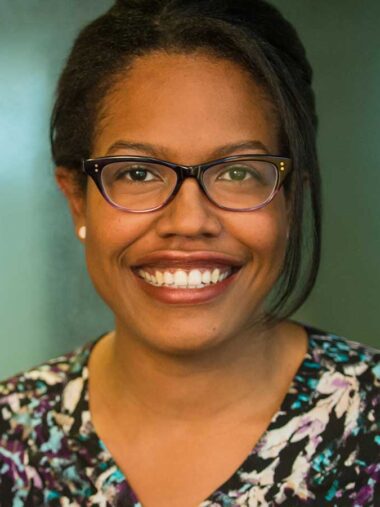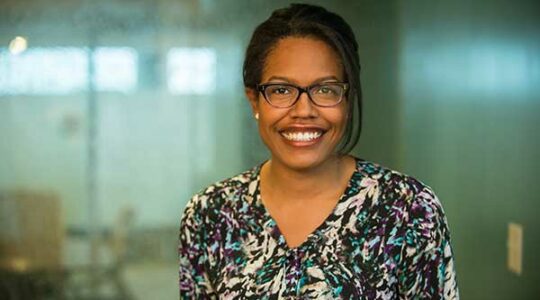
Meet Andrea Grimes Parker
- Khoury Alumni
- BS in Computer Science ’05
- Researcher
Andrea Grimes Parker is currently on the faculty at Georgia Tech, holds courtesy faculty appointments at three additional universities, and is the founder and director of her own research lab focusing on the intersection of technology, health, and medicine. It’s a full plate of work she loves, and Parker would have it no other way.
It was so rewarding not to have to choose one discipline over another. Going to faculty meetings and talks and mentoring students from both worlds was extremely rewarding. Then, bringing it all together and creating this lab of interdisciplinary students where public health students were working alongside computer science students [not only] made me enjoy the work, but I think it was also essential for doing the kind of research that I was doing
Andrea Grimes Parker, BSCS ’05
It was at Northeastern University, first as an undergraduate student and later as a faculty member, where she took the university’s interdisciplinary message to heart, and began juggling multiple disciplines and projects at the same time.
Even before Parker found her focus on human-computer interaction, she knew that Northeastern would be the right place to begin her education. While visiting as a prospective student, she could see the school was excited to have her join the community and that she would be supported in her studies. Professor Bryant York met with Parker and her parents, offering her a rare opportunity to conduct research in her first year. She pursued further research opportunities during her co-op, which prepared her well for graduate school and set the trajectory for her career. For her many research efforts, Parker earned the Computing Research Association Outstanding Undergraduate Award.
“I had so many faculty members, mentors, and supporters that helped me feel like I could achieve my goals,” she says, “and that I had a promising future.”
During graduate school, Parker began to focus on the intersection of technology, health, and well-being through digital health equity research. After earning her PhD, she returned to Northeastern with a joint appointment in Khoury College and the Bouvé College of Health Sciences.
“It was so rewarding not to have to choose one discipline over another,” she says. “Going to faculty meetings and talks and mentoring students from both worlds was extremely rewarding. Then, bringing it all together and creating this lab of interdisciplinary students where public health students were working alongside computer science students [not only] made me enjoy the work, but I think it was also essential for doing the kind of research that I was doing.”
